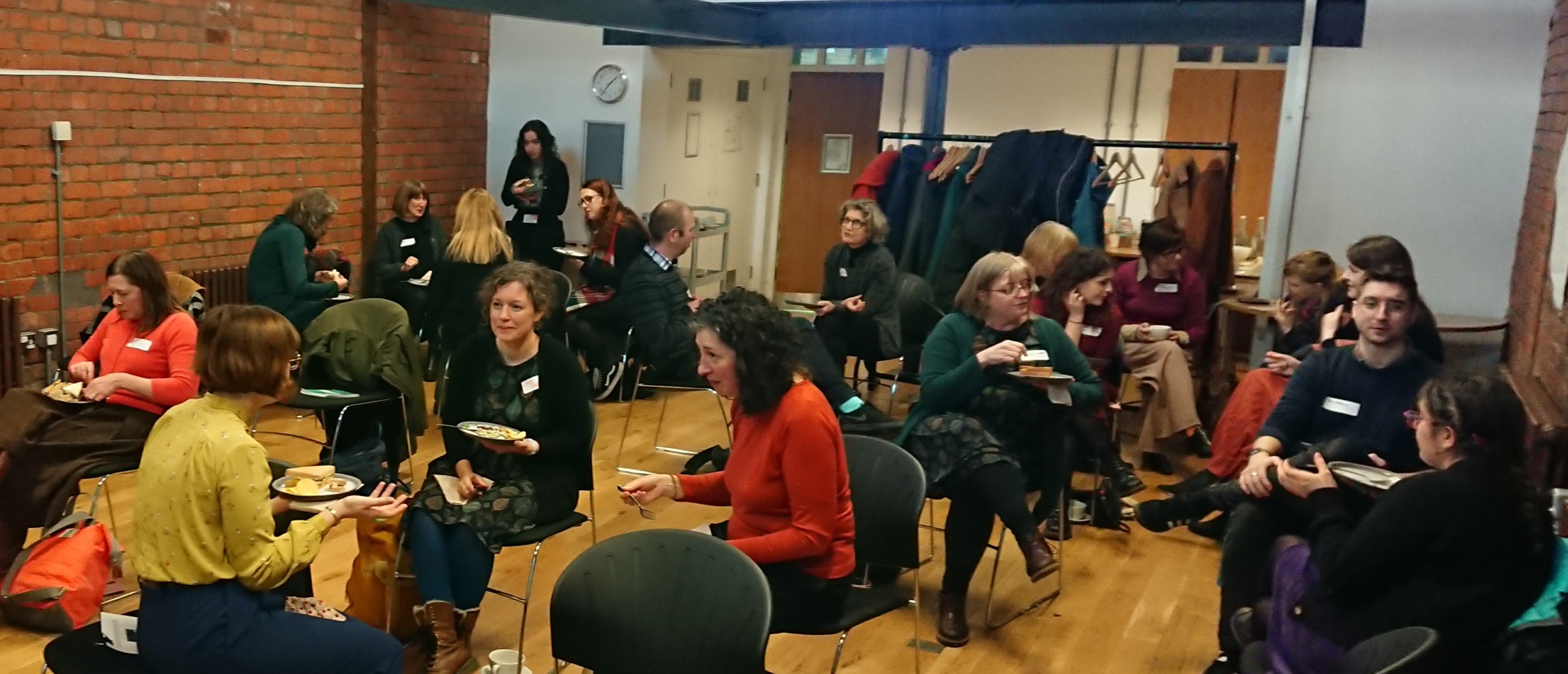Christian Baars and Pierette Squires take a look back at this recent conference by the Northwest Conservators Group which we were delighted to support. #CMNW21
After enjoying helping to coordinate the well-established ‘Conservation Matters in Wales’ for a number of years and a recent move of one of us to England, we were keen to continue the brand in the Northwest. The first in what will be an annual series of events in the region took place on 10 December 2021 at the People’s History Museum: the new ‘Conservation Matters in the Northwest’ conference with the theme ‘Covid and other Disasters.’
The conference was organized by the Northwest Conservators Group in partnership with the Northwest Museums Federation and Museum Development North West, kindly sponsored by Historyonics, and was open to all with an interest in Conservation in the Northwest. This included curators, students, volunteers, interns and, of course, conservators. The meeting took place on a cold and windy day in the warm and cozy Coal Store room at the People’s History Museum in Manchester. We had taken many Covid precautions and encouraged the wearing of face coverings during the meeting, except when asking questions or during mealtimes. Sadly, some delegates were unable to attend due to having to self-isolate.
The global pandemic has been hard on many of us personally and professionally. We have been forced to think again about our support networks and our mental health, and about the sustainability of our practices. We wanted to take this opportunity to explore: What are your experiences of this extraordinary year? Are you coming up for air, or still picking up the pieces? Have you been dealing with water ingress and pest outbreaks during lockdown?
Rachel Webster and Abby Stevens described how they dealt with an outbreak of biscuit beetles in Manchester Museum’s Botany collection during lockdown, which required large numbers of specimens to be bagged and transported to the Conservation Centre in Liverpool for freezer treatment, overcoming the challenges of vacuum cleaner supply problems and vans full of specimens breaking down on the M6 in mid transport.
Similarly, Whitworth Art Gallery in Manchester experienced a moth outbreak during lockdown – in this case in wall-hung rugs. Ann French explained how the gallery addressed the immediate problem, and then, following initial management reluctance, managed to make the case to obtain funding for upgrades to the Textiles store. One thing we all learned is that there is nothing like a good disaster to get the attention of senior management.
Rachel Swift, based in Shropshire, applied her conservation skills in a transferrable way in her community by organizing cultural activities to persuade residents to come back to the high street following lockdown. She used ceramics, problem solving, and her creative and communication skills to run workshops where she felt slightly out of her comfort zone but managed to use her expertise to help other people.
Claire Dean, student at Northumbria University, talked about inclusion and access. In her experience, the pandemic has improved access for some disabled people in regard to information being available on the internet. In other ways, things are more difficult now, such as face coverings, which make it more challenging to communicate for people relying on lip reading; Claire herself is deaf and was therefore speaking from personal experience. Her talk was packed full of information and tips for creating inclusive events, but also everyday activities, such as avoiding automatic backgrounds in online meetings, and having the awareness that the cognitive load is greater in online than during in-person meetings.
Pierrette Squires of Bolton Museums presented on behalf of two Cardiff University Conservation students, Natalie Longworth and Jingyi Zhang, on how students on placement in Bolton had a baptism of fire, or, rather, water, when they assisted in the response to a large roof leak. The students were lucky enough to become engaged hands on with the rescue and subsequent treatment of mounted birds which had got very wet. Added professional development for the students was networking with Lucie Mascord, Natural History Conservator at Lancashire Conservation Centre, for advice. Having the extra two pairs of hands available was extremely helpful to the museum and demonstrated the value of hosting placements.
We are very grateful that the fantastic lunch was paid for by Historyonics and provided by Open Kitchen, the People’s History Museum’s on-site café which is a social enterprise and Manchester’s leading sustainable catering company (reducing food waste by using good ingredients which elsewhere are thrown away; any profits go to local communities struggling with food security).
After lunch, Kloe Rumsey gave us a tour of the amazing People’s History Museum’s conservation studio, which is lovely, bright and airy. As much as we all enjoyed the talks and discussions, we all know that the highlight of a conservator’s day is to have the opportunity to explore someone else’s workplace. Here, we continued the many conversations we already had over coffee and lunch – an amazing networking opportunity.
After so many of us had not seen each other for such a long time it was both refreshing and also a little scary to be in the company of friends and colleagues. For some of us who struggle to network online it was one of the first times we’d networked for two years. We certainly look forward to the 2022 conference.
Thanks to all who helped organize, contribute to and attend such an uplifting event.

